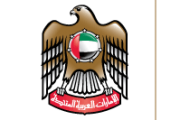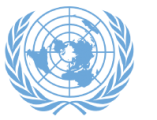Mr. President,
I would like to thank you for organizing this open VTC on children and armed conflict. I also thank Special Representative Virginia Gamba, UNICEF Executive Director Henrietta Fore, and civil society representative Mariam for their insightful briefings today.
The COVID-19 pandemic is having broad-reaching and long-term impacts on lives and livelihoods. For children living in conflict situations, this adds yet another layer of vulnerability. They already struggle to access health services and coverage for their basic needs, including access to education. The weakening of their social protection systems incentivizes child recruitment by armed groups, as well as sexual exploitation.
In order to mitigate the impact of armed conflict on children, the United Arab Emirates takes this opportunity to renew once again its support for, and commitment to, the Secretary-General’s appeal for a global ceasefire. We note with concern that lack of political will has prevented the silencing of guns in most conflict situations.
The UAE continues to prioritize the provision of medical care in conflict situations around the world, which has a direct impact on children and their communities. As part of the UAE’s efforts to support the global fight against COVID-19, we have provided aid to more than 60 countries.
Our humanitarian efforts are also directed towards the long-term interests of children threatened by conflict, including interests like education. The UAE firmly believes that education is not only the right of every child, but also an essential tool for uplifting entire communities. The concept note highlights how access to safe, high-quality education and vocational training is one of the critical needs of children affected by armed conflict, and the Secretary-General’s report similarly emphasises that ending the cyle of violence for children in armed conflict requires comprehensive reintegration programmes that must include education and vocational training. Since 2017, the UAE has worked with partners like UNICEF to support the education of 20 million children in 59 countries, including the rebuilding of 16 schools in Mosul and Baghdad in the last year alone. We also have funded two pre-pilot programmes in Iraq and Colombia so that refugees and vulnerable migrants can get a UNESCO Qualifications Passport in order to have access to higher education and employment opportunities in the future.
My country is deeply concerned by the high level of grave violations against children in 2019 described in the Secretary-General’s report this year (S/2020/525). In particular, we are alarmed by the sharp increase in the number of verified incidents of denial of humanitarian access to children, the overwhelming majority of which were perpetrated by non-state actors, particularly in Yemen, Mali, the Central African Republic, and Syria.
The vulnerable situation of children is particularly troubling in the Middle East, where the number of violations continues to be unacceptably high. In the longest and most entrenched of the crises in our region, we are appalled by Israel’s neglect of children in the occupied Palestinian territories and its detention of hundreds of Palestinian children in 2019. The current plans for annexation threaten to further undermine their rights. In Yemen, the Houthis continue to be listed for grave violations including killing, maiming, and recruiting children, deliberately attacking schools and hospitals, and using dozens of schools for military purposes. We are deeply concerned by and condemn in the strongest terms the Houthis’ escalating obstruction of humanitarian relief efforts, with the Secretary-General verifying 1,553 of such incidents attributed to the Houthis, an increase of nearly 650% from the already high number of incidents of Houthi obstruction in 2018. These actions by the Houthis are exacerbating the devastating effects of the COVID-19 pandemic on families in the areas under their control. Extremist and terrorist groups in our region also continue to pose a serious threat to children. Da’esh in Syria and Iraq, Hay’at Tahrir al-Sham in Syria, Al-Shabaab in Somalia and Al-Qaida in the Arabian Peninsula in Yemen, for example, deliberately kill, abduct, and sexually abuse children, as well as recruit children for suicide bombings.
Mr. President,
We welcome the delisting of the Coalition to Support Legitimacy in Yemen, as a recognition from the United Nations of the Coalition’s unwavering commitment to protect all civilians in armed conflict – especially children, and the precautionary and protective measures the Coalition has taken to strengthen the protection of children in Yemen. Together with other Coalition member states, we reiterate that the Coalition will continue to uphold its commitments and obligations under international law, including international humanitarian law, as well as relevant Security Council resolutions on the protection of children in armed conflict. On behalf of the UAE, as a Coalition member, allow me to take this opportunity to express the Coalition’s deep appreciation and full support for the critical mandate and work of the Special Representative of the Secretary-General and her office. We look forward to continuing to work closely with her to strengthen the protection of children in Yemen and around the world.
In conclusion, the UAE reiterates its continued commitment to upholding the rights of children around the world and to the valuable architecture established by the Council fifteen years ago. We urge other member states to promote a qualitative leap in implementation. In order to do so effectively, full engagement and consultation between the UN and Member States is critical to strengthen child protection capacities and develop strategies to prevent grave violations.


